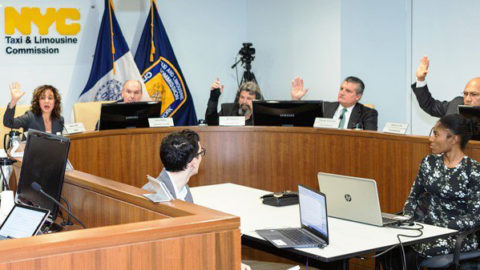In August, New York City Mayor Bill de Blasio signed into law a year-long freeze on new FHV licenses (excluding Wheelchair Accessible Vehicles). A string of suicides and historically bad NYC traffic caused by a massive spike in For-Hire Vehicle (FHV) drivers in recent years lead many industry drivers and advocates to push for the cap – and while seemingly a step in the right direction, there have been some negative, unintended consequences.
Luxury bases, in particular – a segment of the industry that seemingly played no role in contributing to the historically bad traffic and diminishing driver wages that prompted the cap in the first place – are unable to add vehicles needed to take on new accounts. The businesses that sell and lease vehicles to the industry are also taking a serious hit due to the cap.
Somewhere between 15,000 and 25,000 additional FHV drivers applied for licenses after plans for the cap were announced, but before it actually went into effect, significantly reducing its efficacy. By the time the year-long cap ends, in August of 2019, and the door is set to reopen for more FHVs to enter the industry, there may never actually be a significant slowdown in hiring – and a much-needed drop in the number of drivers battling for ever-shrinking slices of the “transportation pie” in NYC.
“Winter is usually a time when business slows down, which allows us to upgrade vehicles in our fleet,” explained Joe Rosenberg, president of Bronx, NY’s R&R Road Worldwide Chauffeured Transportation. “But this cap really complicates things. If I turn in my plates, I’ll lose them, and having to pay for the insurance while I wait for the process to be completed just eats into our profits. If I were to pick up a new account tomorrow, I wouldn’t be able to just go out and add five or six cars to our fleet.”
Despite the roadblock, Rosenberg continues to weigh his options and look to the future, which could include pooling resources with other companies – a measure that could have long-term benefits. But meanwhile, like many Luxury bases, he feels stuck in a holding pattern.
The same goes for vendors like Lucy Berritto, Account Executive for Royale Limousine Manufacturers’ Long Island City, NY location. who normally hears from business owners like Rosenberg at this time of the year.
“It’s a mess, particularly for companies that are actually holding their own or even thriving in what has become a very difficult market,” says Berritto. “If someone needs to trade in a car and their new car isn’t ready right away, they have to take the plates off that car and continue to pay insurance on it because, if they lose the plate, they won’t be able to get it back until the cap is removed. That just doesn’t seem fair, these people are not the cause of the problem.”
“Luckily, we picked up a Mercedes three days before the cap went into effect,” notes Andrea Majer, Executive Vice President, Delux Transportation Services of Port Washington, NY, “but now we can’t add any more vehicles until August.”
Delux has found stability in recent years providing shuttles in 14-passenger executive vans for an industrial park in the mornings and evenings, but the uncertainty caused by not being able to add vehicles makes it difficult to plan ahead, says Majer. She feels caught up in a problem her company had no hand in creating. In fact, as many Luxury bases have transitioned to executive vans and motorcoaches, the argument could be made that moving large groups helps reduce traffic congestion.
“The driver pool has grown dramatically in recent years, but it’s not what it once was because it’s a lot of people who just follow what their phones tell them to do; a lot of the new drivers don’t really know their way around the city, which just makes traffic worse,” adds Laura Flannery, Livery Sales Consultant for Huntington Ford Lincoln in Huntington Station, NY. “We have lost a tremendous amount of business because of this cap. One of my best clients placed a large order worth hundreds of thousands of dollars but we weren’t able to close the deal in time on most of them, and now we’re stuck sitting on them until August. Another client of mine had to open up a company in another state, but he isn’t able to fully serve his NYC clients because of TLC restrictions.”



